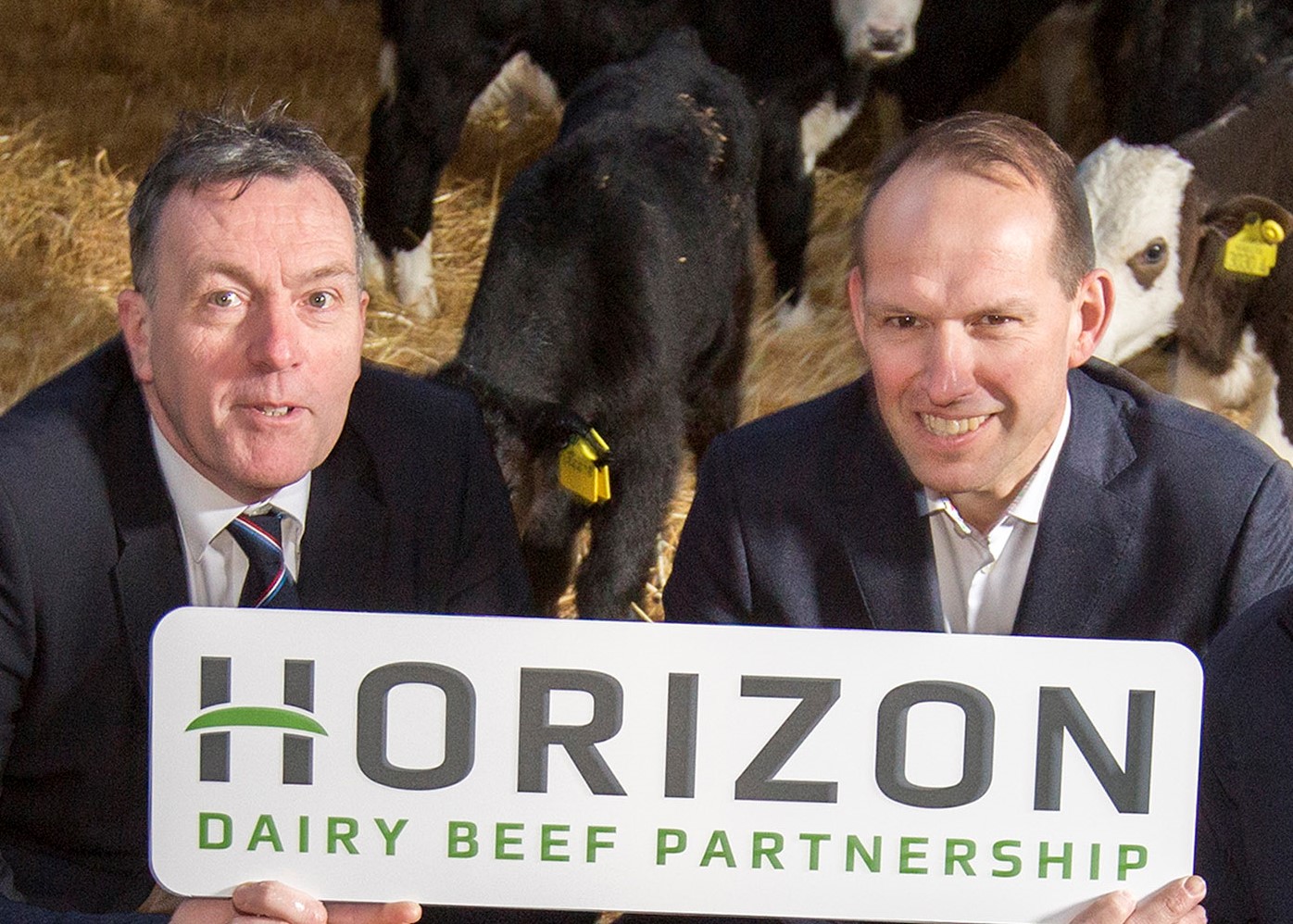An innovative collaboration between two of Northern Ireland’s major agri-food businesses, ABP and Dale Farm, is promoting a more sustainable model for dairy beef production in Northern Ireland, with a stated aim of reducing greenhouse gas emissions.
The groundbreaking ‘Horizon’ project is the first collaborative scheme of its kind in Northern Ireland that promotes breeding animals more efficiently. The ABP and Dale Farm initiative is designed to make the livestock better at converting feed to protein, so that they can reach their target weight at an earlier stage and therefore reduce their carbon footprint.
The sustainable production programme is based on the results of a multi-year research project from ABP’s Demonstration farms in the UK and Ireland. It involves combining, efficient on-farm practices, prescribed rearing protocols and optimum sire selection for dairy beef animals.
Animals participating in the scheme are expected to be marketed at 20-21 months, some four months below the NI average. This will ensure a significant reduction of emissions per animal resulting in a more carbon efficient and lower cost of production model overall. Research has shown that emission reductions of up x% are possible. Importantly, the scheme will also result in better returns for farmers.
Commenting on the project, George Mullan, Managing Director, ABP Northern Ireland, said: “Horizon is bringing our research work to life and is a great opportunity to significantly reduce emissions through applied data and research. With beef emissions at 40% of the global average, Northern Ireland is one of the most environmentally competitive beef producers globally and this work, which is transferable to other beef production systems, will further improve our global environmental competitiveness and credentials.” We believe that programmes such as Horizon demonstrate the potential for Northern Ireland meet its climate change needs whilst also protecting and supporting the many thousands of jobs and livelihoods in the rural economy,” he added.
Dale Farm members are embracing the partnership with ABP, according to Neville Graham. “They see the potential in adding value to their calves. We are encouraging members to look holistically at the breeding of their herds to identify cows that could breed to beef bulls using superior genetics to get a better return off farm. Calves that are bred from select sires are going to be more efficient and if they are more efficient there is more profit for the farmer and a greater benefit for the environment.”
At its Demonstration Farms in Shropshire and in Co. Carlow, ABP has focused on using a data-driven approach to improving the genetics available to the beef herd, so that beef animals optimise their feed conversion ratio (grow faster) and are ready for slaughter at a younger age, thereby significantly reducing their emissions footprint. Over 4,000 animals have been involved in the study so far which is supported and verified by independent experts and research institutions.
The study has demonstrated that with this data-driven breeding approach a methane emission reduction of up to 40% is achievable and this could have significant positive benefits across UK beef production. The research has shown that animals within this same lower age bracket can further a drop in methane emissions by up to 10%, while farmers can improve returns of up to £100 per head – showing economic and environmental sustainability can travel hand in hand.
ABP’s research in the UK is being supported by Harper Adams University where the company recently sponsored a Professorship is Sustainable Beef Production. Teagasc (the State agency providing research, advisory and education in agriculture) and the Irish Cattle Breeding Federation have collaborated with the research in Ireland.
To find out more watch the video on YouTube Here

